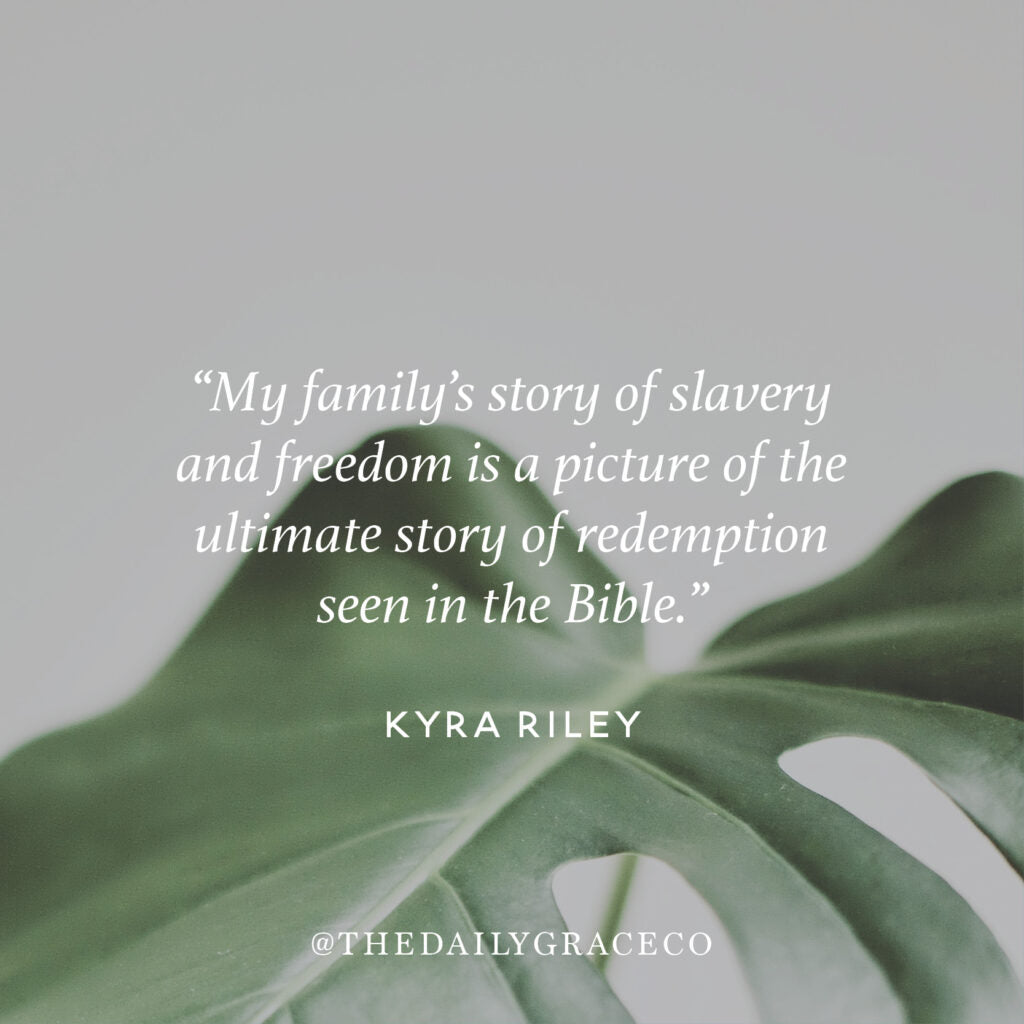Dirt. Gravel roads. Clucking chickens. Rolling, green hills. Whenever I visit my family's farm in Kentucky, I feel like I am stepping back in time to a period of simplicity and struggle. The land contains acres of embedded history, holding the pain and plight of my slave ancestors. As I walk the fields, I imagine my great-great-great grandmother, Susan, pulling up tobacco plants in the hot summer sun. I peek inside the dilapidated log cabin, her refuge from the toil. I envision her there cooking up delicacies from scraps and dreaming of freedom by the windowsill. I wonder what her life was like to work years without pay for the Mills Estate and to raise biracial twin boys on her own. From relatives, I learn that after the Civil War, the estate went bankrupt, and the land was divided. Slaves were free not only from the bonds of slavery but also to depart from the place that troubled them. But, Susan remained. Fortunately, Susan and her sons were able to acquire a portion of the land to reconstruct their lives in liberty. However, their home, the little log cabin, had been put into the hands of another owner. I imagine Susan said goodbye to the cabin bittersweet, saddened her haven was taken away but hopeful of better days ahead. Generations later, my uncle redeemed this cabin and its surrounding area. He bought it back and returned it to its rightful possession. Now, members of my family, the descendants of Susan, own much of what used to be the Mills Estate. The lost log cabin rests in safety, and so does her memory.
My family's story of slavery and freedom is a picture of the ultimate story of redemption seen in the Bible. Redemption means to regain something that was lost through a form of payment. In Scripture, we see this concept expressed culturally through the acquisition of property and people. In Leviticus 25, God established virtues of freedom and restoration among the ancient Israelites. Stated in verses 23-55, an Israelite who had sold himself into slavery or sold his land to pay off debts could be redeemed by the closest relative. This relative would pay for him to be freed or for his land to be returned. This idea is embodied in the story of Ruth in Scripture. Her life is shared to show how the sacrificial act of a "kinsman redeemer" brings a vulnerable widow to rest and safety through a marriage union. If the "redeemer" did not have enough money, the person or property would be returned during the Year of Jubilee, a time in the Israelite calendar to restore all things. The Year of Jubilee would begin at the sounding of trumpets during the Day of Atonement, a holy day when animal sacrifices were performed to recompense for sins.

These cultural norms and calendar periods represented spiritual truths. Slavery and the loss of the property were physical realities that pointed to the debt of sin. Following the lure of their wayward hearts, the Israelites constantly rejected the life of God and chose the path of death. Their failure to live up to His word proved them to be captives of spiritual evil. Through the prophets, God reminded them of His covenant and promised He would redeem. In Jeremiah 15:21, He says, "I will rescue you from the power of evil people and redeem you from the grasp of the ruthless." In Hosea 13:14, the Lord proclaims, "I will ransom them from the power of Sheol. I will redeem them from Death." The people were hopeful God would restore their broken hearts. In Psalm 130:8, the poet states, "...he will redeem Israel from all his iniquities." God Himself would pay the debt of their sins, reclaim them as His own, and return them to wholeness in Him.
God fulfills His word to redeem His people through the saving work of Jesus Christ. Jesus came as our Kinsman Redeemer; He is the Obedient, Elder Brother, and He calls us into the family of God when we are born again by the Spirit, adopted, and given His righteousness. He is our Buyer; by His blood and atoning sacrifice, He purchased us to be His own and forgives us of all our debts. Jesus is our Rescuer; in His resurrection, He pronounced victory over spiritual evil and frees us from the power of death. Finally, Jesus redeems us into union with Him; He is the Husband to His bride, the Church. His covenant commitment keeps us in His abiding presence. Ultimately, redemption is salvific. Romans 3:24 states that we "are justified freely by his grace through the redemption that is in Christ Jesus." God's redeeming act through Jesus is the way by which we are given the gift of grace. This grace brings us back under the Lord's rightful possession and supplies us with the faith needed to believe in Him. In the hand of our Redeemer, our souls are justified and secure in salvation. Pursuing Christlikeness, we can begin to experience life and rest now while awaiting the complete "redemption of our bodies" (Romans 8:23) when Jesus comes again.

How do we live as God's redeemed? 1 Corinthians 6:20 states, "...you were bought at a price. So glorify God in your body." We are not our own. Yet in this new identity, we find freedom. We are God's chosen people, liberated from slavery to sin. Our status is assured by the saving work of Jesus. As a result, we are able to worship God without the burden of our selfish desires. Let us strive to praise God with all of who we are. Let us pray for the allure of sin to weaken and to remember the beauty of the gospel. Finally, let us live freely in day by day restoration, showing our love for God and gratitude for our Redeemer's sacrifice.











